It wasn’t a good idea to paddle this section of the river
Although we had already made our decision, we stopped for advice from a local tour company. But then we ignored that advice and paddled the section anyway. We rationalized our hesitations away. How bad could it be? People tubed it all the time. They probably just wanted us to rent their equipment and hire them to guide us.
Maybe if we’d used different decision making strategies, we wouldn’t have done it.
When we have a repertoire of mental models at our disposal, we’re better equipped to make good decisions. Choosing the right strategy allows us to see a situation with greater clarity thereby reducing the likelihood of error.
Everyone makes bad decisions sometimes.
This one happened several years ago when we were visiting good friends at Christina Lake. Boating and wake boarding (or for some of us, attempting to wake board), biking the Kettle Valley Rail bed, running, kayaking. It’s like a summer intensive boot camp. But a really fun one. There’s food, drinks, great conversation, and lots of laughter.
After spending several days on the lake, we decided to kayak a portion of the Slocan River. The previous year we kayaked from Grande Forks to Christina Lake on the Kettle River.
We wanted something a little more exciting. As it was a rather slow,meandering run. Very relaxing other than the over-arching anxiety that we had to make sure we got out before the falls.
Which we did. Like way before the falls.
Which meant we had to carry our kayaks across several fields before we could get them to a road for pick up. That decision was based on caution. And maybe not enough facts. Like landmarks.
But this decision was different.
Even when we got to our starting destination and saw the difficulty that other paddlers were having, we persisted.
It was obvious that they were novice paddlers accompanied by a guide who was giving them instructions. We even helped someone who had overturned when they launched get back into their kayak.
Looking at the river from our vantage point we thought if this was as bad as it got, we’d be fine.
Ignoring all the while that:
- One person in our group hadn’t kayaked before.
- My husband and I were using kayaks that we weren’t familiar with.
- None of us had spray decks or helmets.
- The water level was unusual for this time of year accentuating the rapids downriver
- We couldn’t see what lay around the corner.
- All the above considered, we’d been advised by the experts to not attempt it.
Know your circle of competence and stay within it.
Circles of Competence are those areas where you have an established set of ability, skills, and understanding. You may have gained this expertise through education (formal or self-directed) life experience, mentor, or apprenticeship.
“I’m no genius. I’m smart in spots – but I stay around those spots.”
Tom Watson Sr.
This seems to be common sense. After all, we know not to perform surgery on someone if we’re not a doctor. But . . .
Bad decisions are often a result of stepping outside our circle of competence
This is a term coined by Warren Buffet as a way to minimize risk in investments. He advised people to invest only in the areas where they had knowledge and expertise.
Taking his own advice he didn’t invest in Microsoft in its early years even though Bill Gates tried to convince him to do so.
Buffett’s rationale was that he didn’t understand technology well enough to take a reasoned risk.
The term has since been co-opted as a tool for decision making in general.
We know this intuitively. Really. Think about it.
A basic understanding of the circle of competence is behind every:
- “Are you sure you know what you’re doing?
- And almost every DIY fail.
You must have your own examples. If not, just type epic fails into your search engine to see some. Ones featured in the Darwin Awards are catastrophic.
Why do we struggle to stay in our own lane?
Have you heard of the Dunning-Krueger effect? These are the names of the researchers who found that we all tend to inflate our abilities. Furthermore, most of us are ignorant of what we’re ignorant of.
So if we don’t know what we don’t know, how do we determine our circle of competence?
Buffett offers the following advice:
- If you don’t know the questions to ask, it’s not your circle of competence.
- If you don’t know the boundaries, it’s not your circle of competence.
4 awesome strategies that lead to better decisions
- Size doesn’t matter but knowing your territory does.
- Know your circles of competence
- Take an inventory of your skills, education, abilities
- Know the boundaries of your circles
- Knowledge does not equal understanding. Inflated self-assessment hides the edges causing us to venture into unknown territory with a pseudo-map.
- Seek advice if it’s outside your circle of competence.
- Vet your source to ensure their expertise.
- Then listen to what they’re saying.
- Know your circles of competence
- Look for disconfirming evidence
- This counter-acts confirmation bias which makes us focus only on that which confirms our bias or decision
- Seeking disconfirming evidence reduces our blind spots enabling a better informed decision.
- Focus on mastery
- “People think focus means saying yes to the thing you’ve got to focus on. But that’s not what it means at all. It means saying no to the hundred other good ideas that there are. You have to pick carefully.” Steve Jobs
- The world is a buffet. No, not Buffett. Buffet. Like a smorgasbord. There are so many opportunities for self-improvement and education. If you’re like me, it’s easy to get seduced into exploring everything that piques your interest. Do yourself a favor and say ‘no’ to shiny new territories. Focus on becoming an expert in the areas of your competence.
- Buffett’s 5/25 rule
- The story goes that Buffett encouraged his pilot to write down 25 things he wanted to accomplish in his life. Then he instructed him to circle his top five. Once he had done so, Buffett asked him what he was going to do with the remaining 20. The pilot said, well they’re still important to me so I’ll work on those when I have time. Buffett told him no. Those become your don’t do at any cost list until you’ve mastered or accomplished your top five.
- The 5/25 rule or smaller variations are useful for prioritizing on shorter time frames as well. Like your daily to-do list. Try it.
- Use the process of inversion to gain clarity
- I’ve read two variations on inverting and both have value.
- What will lead to failure? This calls for making a list of the things that will ensure failure. Making this list helps to expose blind spots and anticipate errors before they have a chance to occur.
- Begin with the end in mind. Look at your goal and work backwards from there. In the end you have a roadmap to guide your progress.
- I’ve read two variations on inverting and both have value.
All’s well that ends well
None of us got hurt that day on the river. Once we rounded the corner and saw what was coming, reality kicked in.
Nothing like raging water to make you take an honest inventory of everyone’s competence. We didn’t run some of the rapids.
Rather we made our way to the edges of the river and pulled our kayaks over the boulders until we hit quieter waters.
I don’t remember how many rapids we navigated this way. It was hard work but we got downstream safely.
This decision didn’t have a catastrophic end. It even gave us an adventure we haven’t forgotten. In hindsight though, we wonder how we so easily ignored all the signs.
Knowing and staying within your circles of competence will bring you peace of mind!
It’ll build confidence in what you’re good at and give you clarity in making difficult decisions.
P.S. We make hundreds of decisions a day. These strategies aren’t practical for choosing what to make for dinner or what we should wear to work. Although we may get disconfirming feedback on both of those at times. And maybe the 5/25 rule would be useful at times too. Okay. Maybe they are useful for all kinds of decisions.
The point is that keeping these strategies in mind will help us with those more decisions that have bigger implications for us. The kind that keep us awake at night.
May all your decisions be good ones!
~ Priscilla

Yes! I want to receive your newsletter!
Simply . . .

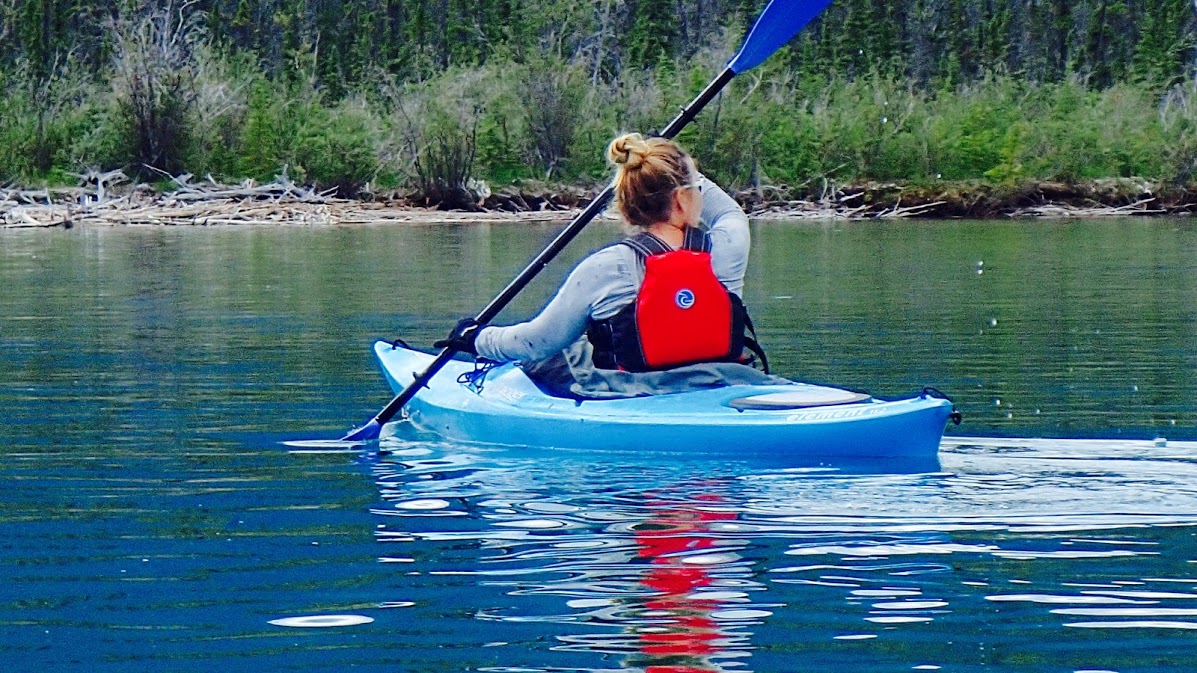
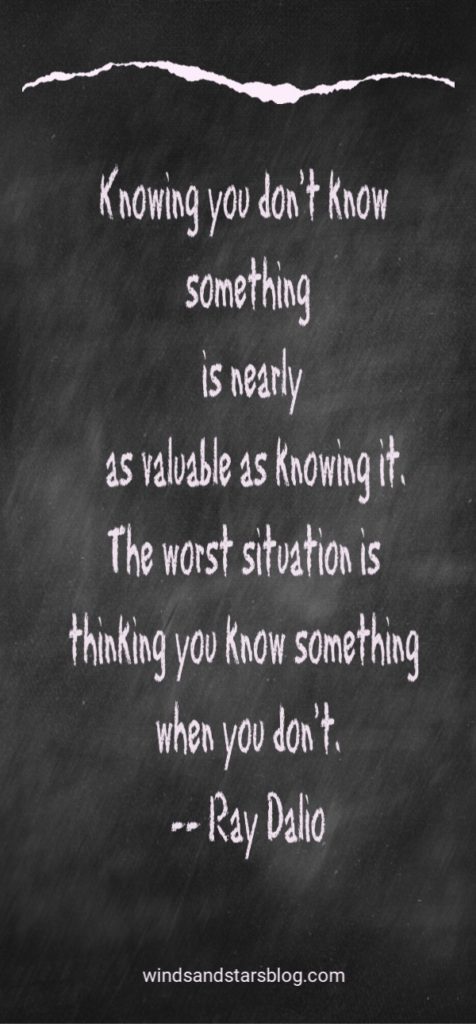
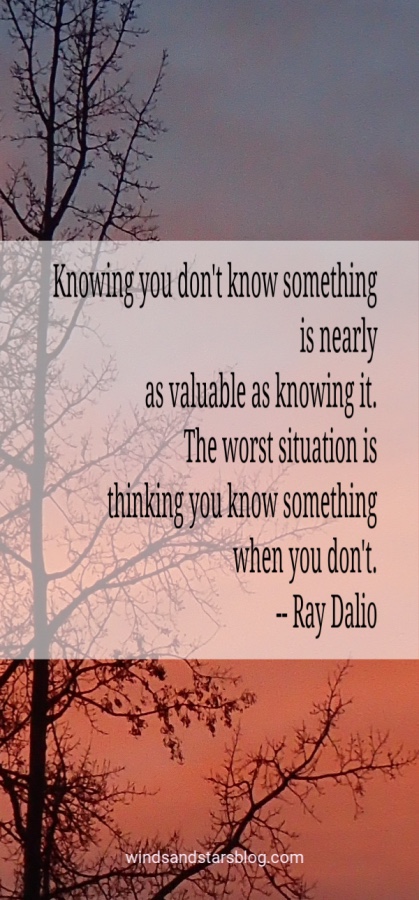
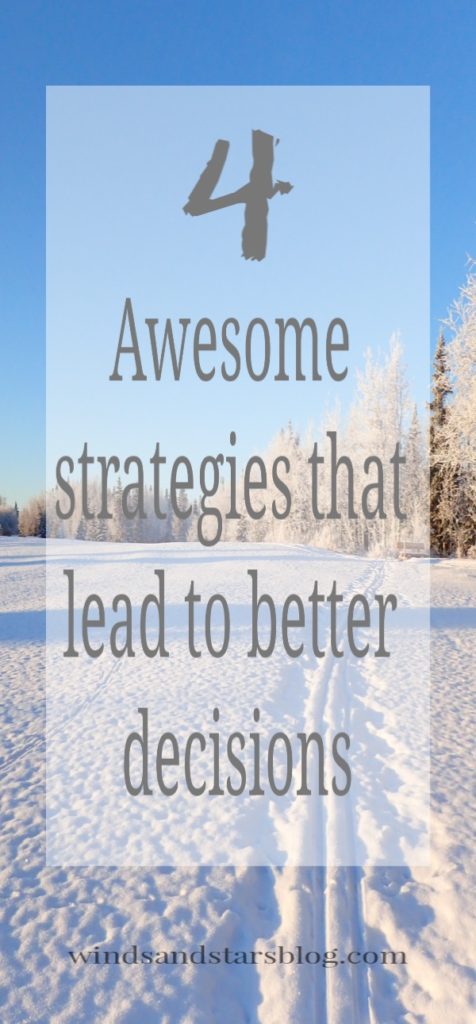
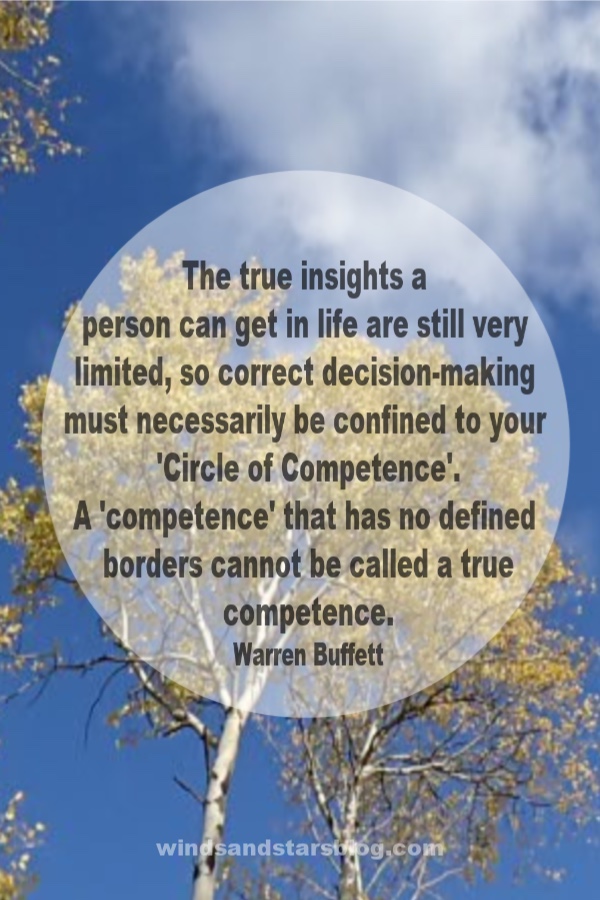
Great insight and advice!
Thank you!
I will try to apply this. Hope its not too late
It’s never too late to change how we do things. Life is learning and growth is about moving forward rather than looking back. There’s courage in a willingness to apply new information. Thanks for commenting!